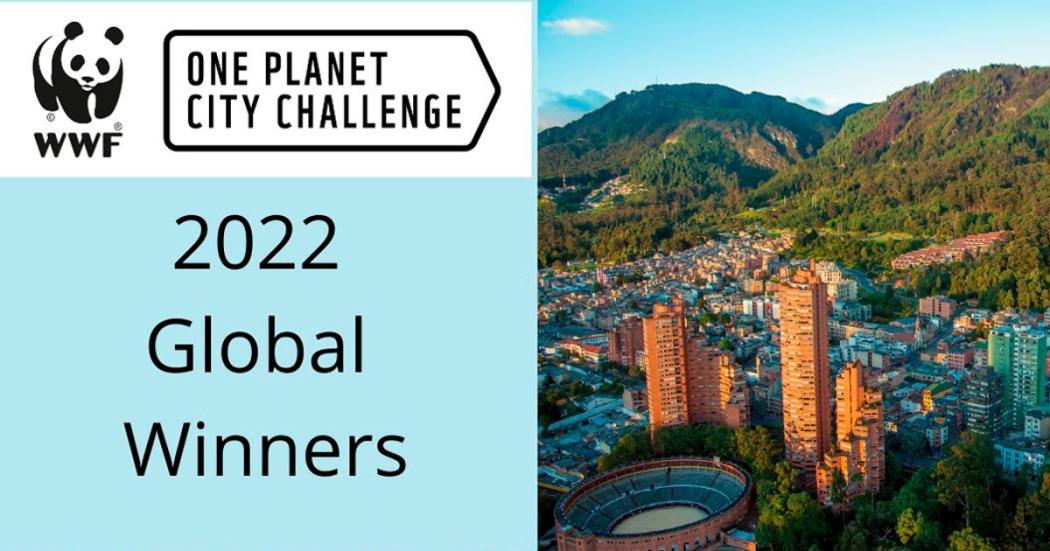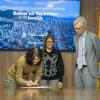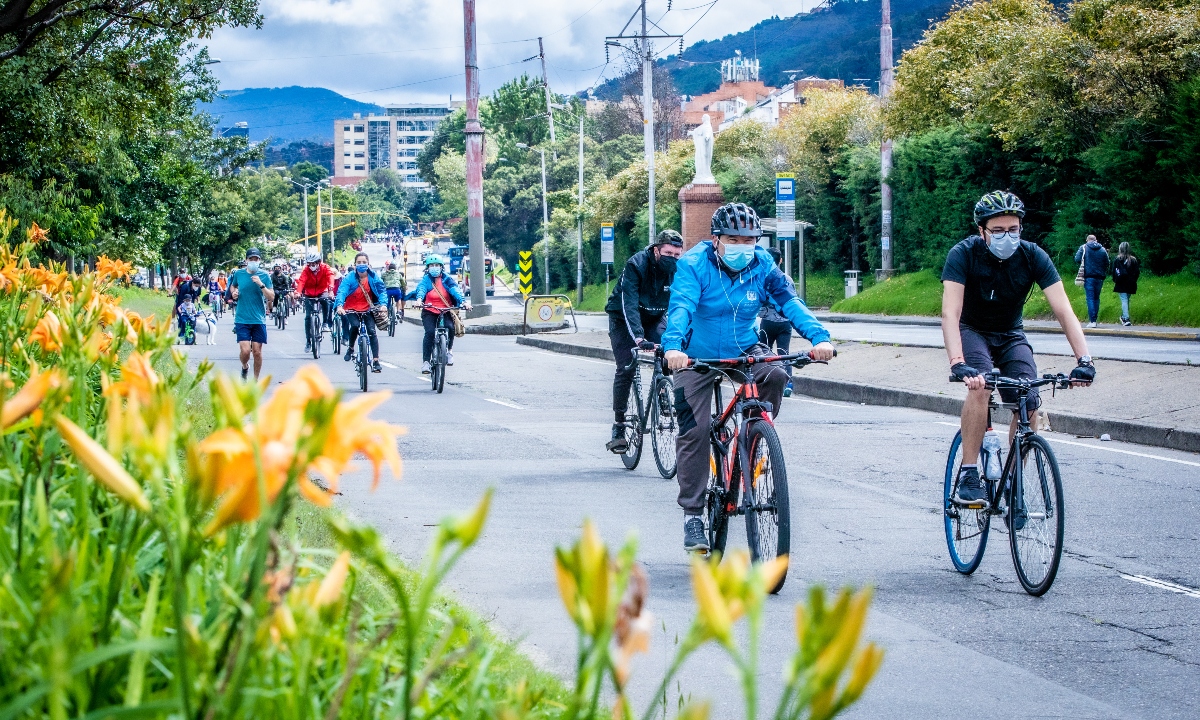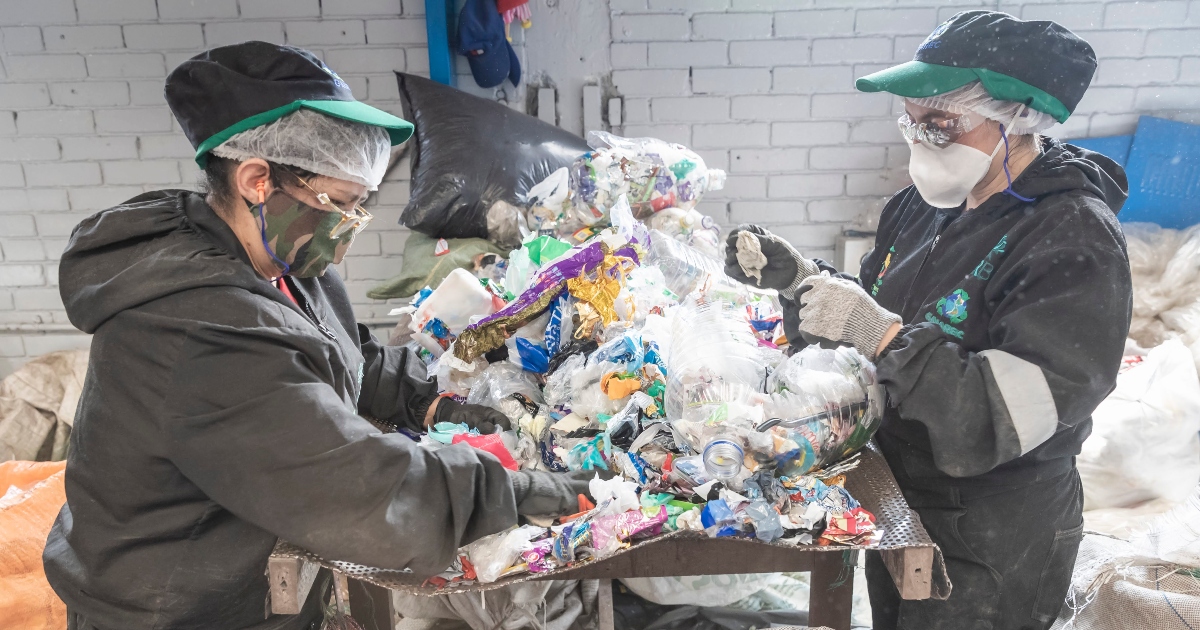Thanks to its urban climate action plans and management, Bogotá was selected as one of the two global winners of the One Planet City Challenge (OPCC) 2021-2022 led by the World Wildlife Fund (WWF).
"We are very happy with and proud of the WWF’s recognition. We are one of only two cities in the world to be recognized in the One Planet City Challenge (OPCC), which is a global competition, and this is even more meaningful than usual now that it is Environment Week. The prize was awarded after very careful evaluation by more than 20 global sustainability experts. And what is Bogotá being recognized for? Its climate commitment. “They evaluated our Climate Action Plan, the way we formulated it and, of course, how we have been implementing it," said the Secretary of the Environment, Carolina Urrutia.
The challenge, in which 280 cities from 50 countries participated, aims to mobilize cities to develop strategies to thrive in balance with nature and meet the goals set out in the Paris Agreement.
A panel of 21 experts in urban sustainability was in charge of awarding Bogotá this prize after reviewing different challenges. The jury’s praise focused mainly on Bogotá’s political commitment to addressing the climate crisis, the assessment of risk and vulnerability of climate change, and its ambitious long-term adaptation goals (2050).
In the following tweet, Mayor Claudia López celebrates the fact that Bogota has won this award and continues to consolidate itself as a world leader in mitigating the climate crisis:
Bogotá sigue consolidándose como líder mundial en mitigación de la crisis climática! Ganamos el #OnePlanetCityChallenge de @WWFCities, organización ambiental internacional, por nuestro Plan de Acción Climática y sus metas claras para reducir emisiones y migrar a energías limpias. https://t.co/vpmi2uHKGV
— Claudia López Hernández (@ClaudiaLopez) May 31, 2022
Marco Lambertini, director of WWF International, said the following: "Bogotá and Lund (Sweden) are two inspiring examples of how local governments, from very different contexts, can plan and drive the transition to more sustainable cities. Both cities are a global example showing others what can be accomplished!"
Since the arrival of Mayor Claudia López, climate change has been a priority. One of the major steps taken by this Administration is the design and presentation of the Climate Action Plan (PAC, as per the acronym in Spanish), a roadmap with a 30-year vision to reduce emissions by 15% by 2024 and 50% by 2030, and to achieve carbon neutrality by 2050.
The PAC was built on scientific knowledge and is based on 30 major mitigation and adaptation actions, focused on increasing green areas, implementing nature-based solutions, promoting environmentally responsible production and consumption, sustainable mobility, and changing habits.
In line with this progress, the District Administration presented the Climate Risk Assessment to the public. For the first time, this assessment was carried out at the scale of planning units for rural and urban areas, to learn how climate change affects the city and identify the possible threats that could affect Bogotá in the future.
According to this diagnosis, in 2040, flood events, mass movements, forest fires, torrential floods, and urban heat islands could be more intense and frequent. Temperatures are expected to increase by 0.25°C in rural areas and 0.65°C in urban areas, and rainfall is expected to be 35% higher in the west and 15% lower in the Cerros Orientales and Sumapaz.
These efforts, together with adaptation and mitigation actions and emissions reports, were the motivation for the OPCC jury to choose Bogotá as an inspiring example for the rest of the world as a city that is addressing sustainability challenges.
Below is a tweet from WWF Cities inviting people to attend the One Planet City Challenge awards event in which Bogota will participate:
🏆 Tune in at 2pm (CET) on June 2 to meet the OPCC 2022 global winners and to listen to #citychangers to discuss the role of vision in the battle against climate change. Register here https://t.co/91lOsnctuV
— WWF Cities (@WWFCities) June 1, 2022
🌍#OnePlanet City Challenge for #sustainable#cities@UrbanFutureConfpic.twitter.com/LeZhAWdjRy
"Bogotá's mitigation targets are aligned with science-based targets, i.e., they are commensurate with the need put forward by climate change experts to limit the planet's temperature rise to 1.5 °C by the end of the century. In addition, their plans and targets are aligned with the most significant emissions sectors and include areas that are difficult to address, such as emissions from the transport sector," said Paula Rodríguez, sustainable cities specialist at WWF Colombia.
A city committed to sustainable mobility and the protection of its green areas
This recognition is an opportunity to continue moving forward and making strong decisions such as those that the administration of Mayor Claudia López has been taking to have a greener, more equitable, and resilient city.
In this regard, the "Bogotá Reverdece" Land Use Plan, which prioritizes bicycles, pedestrians, proximity, and clean mass transportation with five subway lines, two regional trains, seven cable car lines, and a zero-emission bus system to reduce the carbon footprint and contribute to meeting mitigation goals, stands out. Additionally, it protects and expands the Main Ecological Structure by 30%, raises the level of protection of wetlands, and increases their area by 20%.
The "Mujeres que reverdecen", "Aprender haciendo", "Sembradoras por la ReactivAcción" programs, the 5X1 resolution (minimum five trees planted for each tree to be cut down for construction work), the Air 2030 Plan, and the renewal of the public transportation fleet with more than 1480 electric buses that will be on the road by the end of 2022 are also part of this Administration’s major commitments to address climate change.
"This is a way of recognizing Mayor Claudia López’s leadership and political commitment. From day one, the Mayor has been committed to climate change, with the support of the Council and citizens. We want to thank WWF for this recognition, for praising Bogotá for doing its homework. We are taking climate action, and we are going to achieve this hand in hand with Bogotá’s citizens, who are also in the process of transforming their habits", concluded the Secretary of Environment, Carolina Urrutia.








